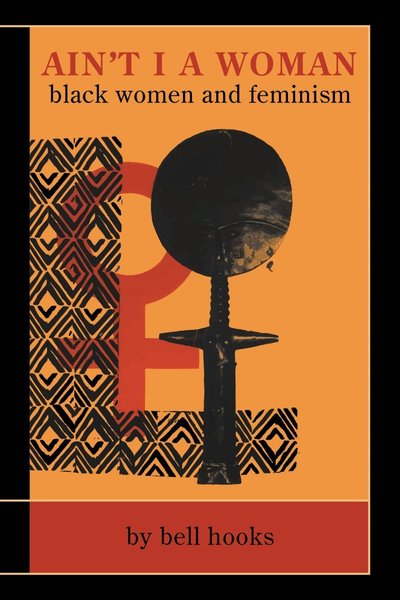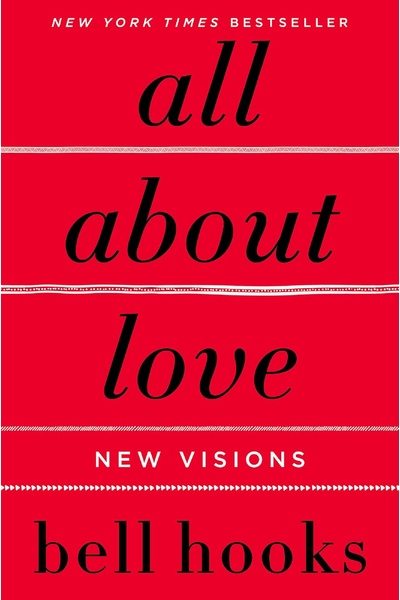Bloodchild and Other Stories
A classic collection by the master of science fiction feminist literature Butler, featuring the Hugo and Nebula Award-winning titular novella that explores gender roles, power relationships, and identity through interspecies dynamics.

📝 Book Review
In the vast cosmos of science fiction literature, Octavia E. Butler’s Bloodchild shines like a brilliant star, illuminating the expansive terrain where feminism and science fiction converge with its unique radiance. This titular novella, first published in 1984, not only earned Butler the dual honors of the Hugo and Nebula Awards but also became an immortal classic of science fiction feminist literature.
Born in 1947 and passing in 2006, Butler’s life resembled the stories she crafted—filled with breakthrough and subversion. As the first Black woman to receive the highest honors in science fiction, Butler was respectfully called the “Mother of Afrofuturism,” a title that reflects not only her groundbreaking contributions on the racial level but also highlights her extraordinary talent in imagining futures. In 1995, she received the MacArthur Foundation “Genius Grant,” further confirming her exceptional position in the literary world. Many critics compare her to the Toni Morrison of science fiction, an apt comparison that captures both the depth and influence of her work.
The story of Bloodchild unfolds on a distant planet where human colonists have established a peculiar coexistence with the Tlic, a race of giant, intelligent insectoid aliens. This relationship appears mutually beneficial on the surface: humans provide the Tlic with hosts for incubating their eggs, while the Tlic offer humans protection from other dangerous creatures on the planet. However, behind this seemingly balanced relationship lies complex power dynamics. Every human family must provide a child as a host, a contractual system that appears voluntary but is actually imbued with coercive undertones.
The protagonist, Gan, is a human boy approaching adulthood who faces the choice of becoming a host for T’Gatoi, a female Tlic who has maintained a long-term relationship with Gan’s family and can be said to have watched Gan grow up. As his coming-of-age ceremony approaches, Gan must decide whether to accept his destiny as a host. However, when he witnesses firsthand the bloody process of egg hatching, the brutal reality completely shocks him. During this process, the host’s body is torn apart in excruciating pain, causing Gan to develop deep fear and doubt about the fate he is about to face.
Through this seemingly simple science fiction setup, Butler actually challenges our fundamental understanding of gender roles. In this story, traditional gender divisions are completely subverted: males take on the roles of “pregnancy” and “childbirth,” while the female alien T’Gatoi occupies the dominant position. This subversion is not merely superficial; it penetrates to the core of power relationships. Gan has been socialized from childhood to accept his role as a host, a process that demonstrates how identity is constructed within power relationships. On the surface, Gan possesses freedom of choice, but in reality, coercive forces lurk behind this choice. As he seeks his identity, he must find his place within oppressive relationships, revealing the complex predicaments individuals face when resisting systemic oppression.
Although Butler herself once denied that Bloodchild was an allegory for slavery, many critics still read profound racial and colonial undertones in this story. The relationship between humans and Tlic indeed presents many characteristics similar to historical slavery: one race controls another’s bodies, the controlled develop economic dependence on the controllers, this oppressive relationship is transmitted across generations, and ultimately the oppressed begin to accept and internalize this oppressive relationship. Gan’s eventual acceptance of his fate reflects, to some degree, how the oppressed learn to coexist with oppression and even find meaning and dignity within it.
From a postcolonial perspective, this story reveals more complex power dynamics within colonial relationships. The Tlic are not simply oppressors; their culture profoundly shapes the human colonists. The interaction between the two cultures presents a hybridity where humans are neither complete victims nor complete subjects. They seek survival strategies under unequal power relations, constantly negotiating their identity within colonial relationships. Gan’s growth process is a microcosm of this identity negotiation, as he must find balance between maintaining his human identity and accepting his role as host.
Butler’s work made revolutionary contributions to science fiction feminist literature. She transcended the traditional science fiction’s clear-cut binary thinking of good versus evil, revealing the multiple dimensions and complexity of power relationships. Under her pen, the Tlic are both oppressors and protectors, humans both victims and collaborators. This complexity prevents readers from making simple moral judgments about any party, instead requiring deep consideration of the complex relationships between power, dependence, and survival.
More importantly, Butler placed the body at the center of political analysis. In Bloodchild, the body is not merely personal but serves as a carrier of political and social relationships. Gan’s body bears the contractual relationship between two races, carries family traditions and expectations, and embodies personal desires for freedom and dignity. Through this politicization of the body, Butler provided feminism with new analytical frameworks and imaginative spaces.
This innovation extends beyond literary techniques to profoundly influence feminist theory. Butler achieved truly intersectional analysis in Bloodchild, weaving together different identity dimensions of race, gender, and even species. She demonstrated that power is not simply a binary relationship of oppressor and oppressed but a complex network filled with contradiction, negotiation, and resistance. The body in her theoretical framework is no longer a passive object but an active site where political and social relationships unfold. Most importantly, even in seemingly hopeless situations, she still leaves space for resistance, preserving possibilities for individual agency.
Bloodchild and Other Stories contains not only the award-winning titular novella but also several other important short stories by Butler, each shining with unique brilliance like pearls. “Speech Sounds” explores communication breakdown and human isolation, examining how people might rediscover connection in a world where language abilities are gradually lost. “Crossover” delves into the complexity of race and identity, showing individual struggles and negotiations between multiple identities. “Near of Kin” courageously touches on sensitive topics of family relationships and social taboos, questioning our definitions of “normal” relationships. Finally, “Positive Obsession” is an autobiographical essay where Butler shares her writing journey and creative philosophy, providing readers with an important window for understanding her work.
Butler’s work has had profound and lasting influence on science fiction literature, extending far beyond literature itself. Her emergence marked the arrival of science fiction’s diversification era, breaking the field’s long-standing dominance by white male voices. She not only brought more female voices to science fiction but, more importantly, introduced the unique perspectives and experiences of Black women. By skillfully weaving social criticism into science fiction narratives, she proved that science fiction could not only entertain readers but also serve as a profound tool for social criticism. Her work elevated the literary quality of science fiction as a whole, gradually moving it from marginal genre fiction toward the center stage of literature.
For feminist theory and practice, Butler’s contributions are immeasurable. She provided feminism with new spaces for imagining the future, enabling feminists to move beyond criticism of reality toward envisioning entirely new possibilities. Her work deepened the analytical depth of intersectionality theory, demonstrating how different identity dimensions like race, gender, and class interweave. Through deep exploration of body politics, she expanded feminism’s theoretical space, making the body a key site for understanding power relationships. Most importantly, she provided feminism with new strategies and possibilities for resistance, proving that even in the most oppressive circumstances, individuals still possess agency and space for resistance.
In our era of rapidly advancing artificial intelligence and biotechnology, Bloodchild demonstrates remarkable prescience and continued relevance. As reproductive technologies continue advancing, issues like surrogacy and genetic editing increasingly become focal points of social attention, and Butler explored the ethical questions behind these technologies through science fiction decades ago. When we discuss bodily autonomy, Bloodchild’s complex depictions of bodily control provide profound insights for these discussions. In the globalization era, power relationships between different cultures and races have become more complex, and Butler’s understanding of the non-binary nature of power relationships provides important theoretical tools for analyzing contemporary global politics. Contemporary identity politics’ complexity also finds early echoes in Bloodchild, as the interweaving and negotiation of multiple identities remain important themes of our time.
This work’s value in education is irreplaceable. It serves not only as a classic text in science fiction literature courses but has become a valuable resource for interdisciplinary teaching. In gender studies, it provides students with vivid cases for understanding feminist theory, helping them comprehend how gender roles are constructed and challenged. As a representative work of African American literature, it offers unique perspectives for racial studies, showing how science fiction can serve as an effective tool for exploring racial issues. In discussions of bioethics, the questions Bloodchild raises about bodies, consent, and survival provide rich material for students’ moral contemplation.
However, like any groundbreaking work, Bloodchild has generated widespread controversy and discussion. Academic debates persist over whether this work constitutes a slavery allegory, with some scholars arguing that such readings oversimplify the work’s complexity while others insist these historical connections cannot be ignored. The work’s depictions of violent scenes have also sparked controversy, with some critics questioning the necessity of these descriptions and worrying they might traumatize readers. Regarding power relationships’ complexity, different scholars have varying understandings—some praise Butler’s grasp of power relationships’ non-binary nature while others worry this complexity might blur moral judgment boundaries.
Within feminist circles, Bloodchild has similarly generated intense discussion. Some feminist critics worry the work might reinforce gender essentialism by seemingly linking reproductive functions with specific gender roles. Other critics question whether the work somewhat glorifies violent relationships, concerned that Gan’s eventual acceptance of his fate might be misread as legitimizing oppression. Questions about whether space for resistance truly exists have also generated widespread discussion, with some believing Butler leaves important space for individual agency while others question whether genuine resistance is possible within such oppressive structures. Ultimately, whether this future imagination is truly liberatory remains unresolved, which is precisely why this work continues to generate discussion.
Bloodchild’s influence extends beyond literature, attracting numerous artists and creators over the years and spawning various adaptation attempts. Radio drama producers have repeatedly brought this story to the airwaves, using the art of sound to convey its complex emotional and intellectual layers. Experimental theater directors have been drawn to the story’s dramatic tension, exploring how to combine science fiction elements with profound social issues in small theaters. Although multiple film and television production teams have planned to bring Bloodchild to the big screen, these projects mostly remain in development due to the complexity and sensitivity of its themes. The digital age has provided new platforms for this work’s dissemination, with various digital media forms from podcasts to web shorts attempting to reinterpret this classic story.
In the context of globalization, Bloodchild has crossed linguistic and cultural boundaries, being translated into multiple languages and spreading worldwide. From European university classrooms to Asian literary research institutes, international academia’s research enthusiasm for this work has never waned. More importantly, it has promoted cross-cultural dialogue and understanding, allowing readers from different cultural backgrounds to find resonance and inspiration within it. Butler’s work has profoundly influenced subsequent science fiction writers, from Nnedi Okorafor to Liu Cixin, with many contemporary science fiction authors acknowledging her inspiration and continuing and developing the traditions she pioneered in their own work.
Today, Bloodchild still stands as an immortal monument of science fiction feminist literature through its unique science fiction setting and profound social criticism. It provides valuable imaginative space for understanding gender, power, identity, and resistance, proving that literature’s power lies not only in entertainment but in inspiring us to contemplate fundamental questions of human existence. In this era of uncertainty, Butler’s voice remains clear and powerful, reminding us to remain vigilant when facing oppression, maintain hope when seeking liberation, and preserve imagination when constructing the future. This work will continue influencing generation after generation of readers, leaving indelible footprints on the developmental path of science fiction literature and feminist theory.
Discussion
读书讨论
分享您对这本书的感想和看法,与其他读者交流见解
加入讨论
分享您对这本书的感想和看法,与其他读者交流见解
加载评论中...
Book Info
Related Topics
🛒 Get This Book
 Buy on Amazon
Buy on Amazon Related Books
读书讨论
分享您对这本书的感想和看法,与其他读者交流见解
加入讨论
分享您对这本书的感想和看法,与其他读者交流见解
加载评论中...

